Above: The confluence of the Kitlope and Gamsby Rivers. Sam Beebe | A critical moment in negotiations to protect the Kitlope—Gerald Amos, chief; John Cashore, British Columbia’s minister of the environment; author; Spencer B. Beebe; and Cecil Paul, Haisla elder, on the shore of Kitlope Lake, 1993. Spencer B. Beebe | Interior of the NCC. Sam Beebe | Ecotrust staff and board members in June 2022. Kim Nguyen
Our organization was imagined as a natural system, and over the past 30 years, we have embodied this through overlapping cycles of growth, adaptation, decomposition, and regeneration. Experiences of our history are diverse, and we have the opportunity today to listen, learn, and co-create our story of the past. We invite you to explore one presentation of our three decades, and we warmly welcome your feedback.
Explore our history through the five chapters below:
Chapter 1: 1991 – 1996
The rain forests of home
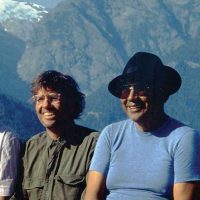
It is our interdependence and the character of our relationships with each other and our environment that matter.
—Spencer B. Beebe, Ecotrust founder, shown above with Cecil Paul, Haisla Elder
The idea of Ecotrust began on the banks of the Kitlope River, British Columbia in 1990. There, Spencer B. Beebe met Haisla First Nation leaders Cecil Paul, Charlie Shaw, and Gerald Amos and heard about provincial plans to clearcut the forests in their traditional homeland. Over the next six years, these leaders and the many who joined them would work to protect the 800,000-acre Kitlope and the Haisla’s ancestral connections. On February 13, 1991, Ecotrust was incorporated as a nonprofit organization by Spencer, with the support of Conservation International.
Our new organization contributed visioning, mapping, fundraising, local capacity building, leadership development, and brokering to successful protection of the Kitlope—protection that aimed to support the social, economic, and environmental needs of the Haisla First Nation. In 1996, the Huchsduwachsdu Nuyem Jees, the Kitlope Heritage Conservancy Protected Area, was created to be jointly managed by the Haisla First Nation and the provincial government of British Columbia.
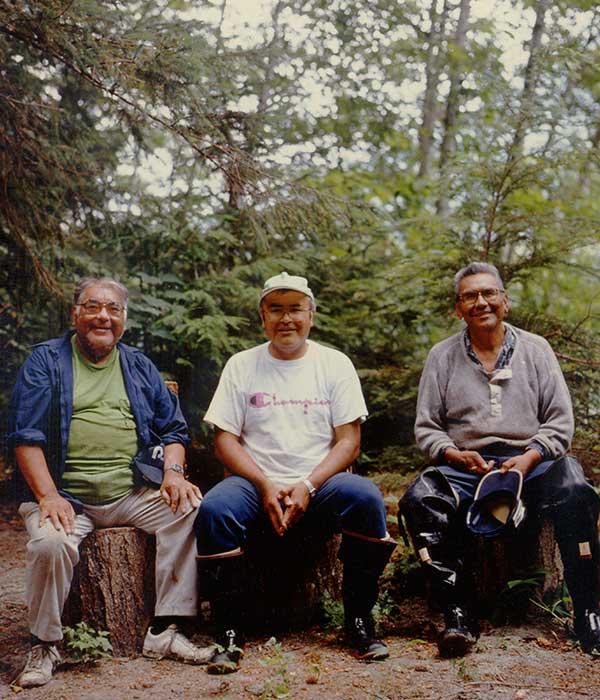
Haisla First Nation members Charlie Shaw, councilor; Gerald Amos, elected chief of the Kitamaat Village Council; and Cecil Paul, a hereditary elder. Spencer B. Beebe
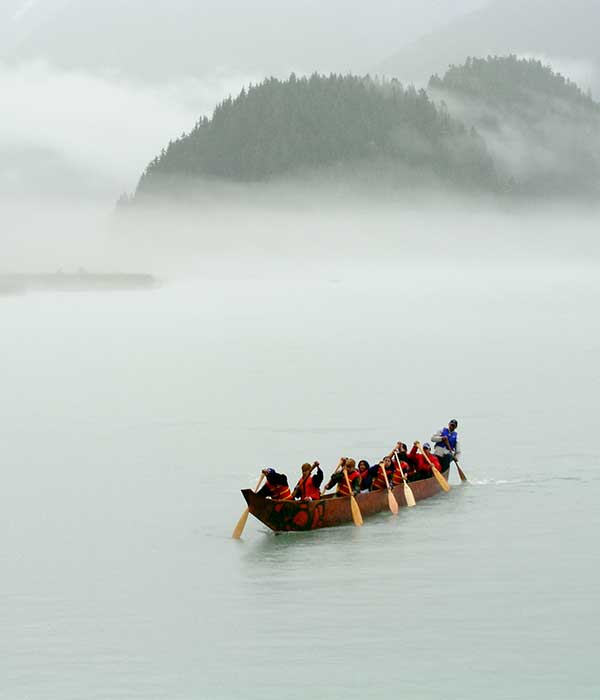
Youth in the magic canoe, Kitlope. Photo credit: Sam Beebe
Ecotrust, the organization that grew from partnership in the Kitlope, was a reimagining of the conversation and development approaches from which Spencer and early Ecotrust staff came. As described in our 1993 strategic vision New Bearings, Ecotrust’s approach would be rooted in “acknowledging humankind as an inseparable part of the natural world.” Our work would be community-led, recognizing “local people cannot afford to see their environment as an object to be exploited or saved” and place, specifically the coastal temperate rain forests spanning from the redwoods of California Kodiak Island, Alaska, would be the frame for our work.
By December of 1991, Ecotrust was testing our approach in a new community, joining with The Nature Conservancy and the people of Willapa Bay, Wash. in creating the Willapa Alliance, a local initiative to promote ecosystem restoration and economic development in the Willapa watershed. And in 1994, we gathered people from a wide array of disciplines and experiences for the first conference on the temperate rain forests of North America. More than forty individuals shared knowledge of the region’s history, culture, economy, and ecology, knowledge that would be collected in an early Ecotrust publication, The Rain Forests of Home.
Place, specifically the coastal temperate rain forests spanning “from the redwoods of California to the vast stands of spruce and hemlock of Kodiak Island, Alaska,” would be the frame for our work.

Ecotrust’s founding story shared by Ecotrust founder Spencer B. Beebe at TEDx Portland in 2011.
Milestones: 1991-1996
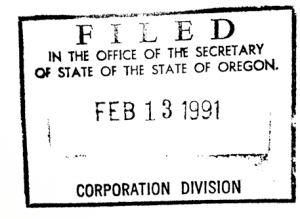
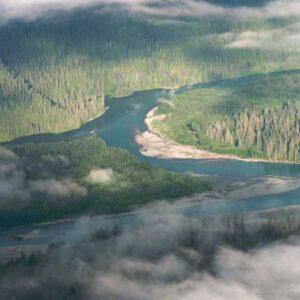
Links: The Rain Forests of Home
Publication
Containing over a hundred maps, graphs, tables and photographs, The Rain Forests of Home: Profile of a North American Bioregion presents a diverse portrait of the natural and human forces which have shaped and are still shaping the coastal temperate rain forest.
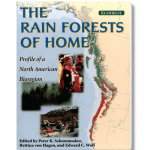
Publication
The coastal temperate rain forests of North America occupy a place of central importance in the global future of this forest type.
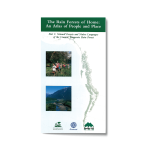
Chapter 2: 1997-2009
Place Matters
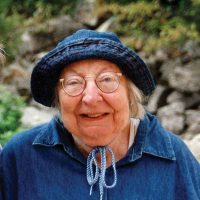
Working along with natural principles, people can create economies that are more reliably prosperous than those we have now and also more harmonious with the rest of nature.
—Jane Jacobs, Author, activist, and member of the Ecotrust Board of Directors
Between 1997 and 2009, Ecotrust’s work stretched from the Copper River in Alaska to coastal California. Encouraged by Ecotrust board member, mentor, and brilliant urbanist Jane Jacobs, we embarked on an urban project, purchasing a century-old warehouse in the rapidly redeveloping Pearl District of Portland, and in 2001, we opened the doors to the Jean Vollum Natural Capital Center. A significant investment of Ecotrust’s growing Natural Capital Fund, the building became home base for Ecotrust and a dynamic group of businesses and organizations generating ideas, goods, and services of a conservation economy, with plenty of room to invite the public.
Indigenous leadership and sovereignty remained a guiding principle. In 2001, we raised the resources to support the first Indigenous Leadership Awards, which has since recognized 60 tribal leaders for their unwavering dedication to strengthen tribal sovereignty and their efforts to uplift the environmental, cultural, economic, and social conditions of their communities and homelands.
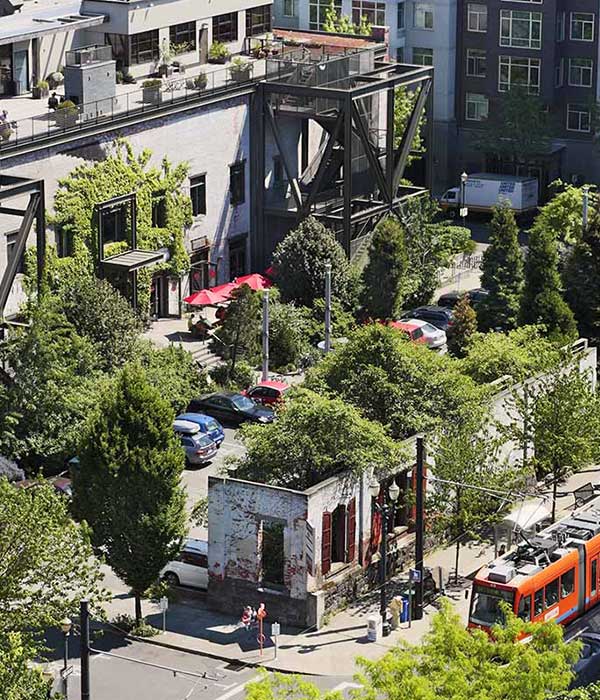
An aerial shot of the Jean Vollum Natural Capital Center and the Portland Streetcar. Dan Tyrpak
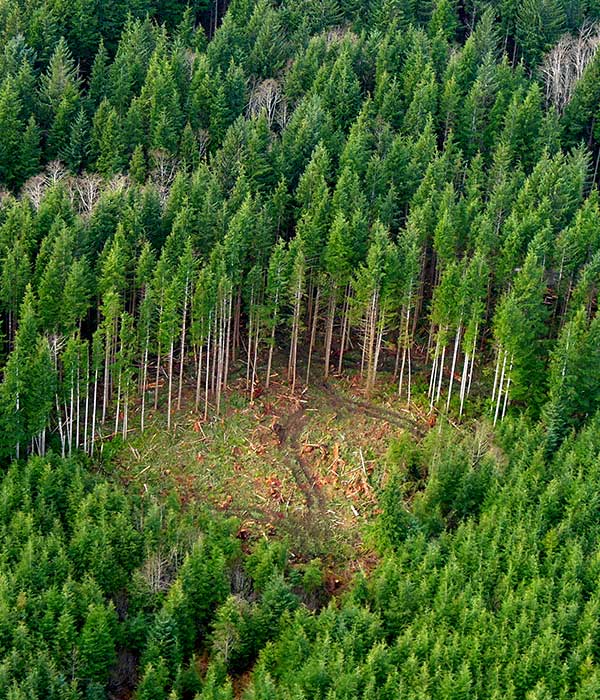
A patch cut on the Dickey property. Photo courtesy of EFMI
Fisheries, food systems, and forestry were connected spheres in our region, and we brought our combination of network-building, technical support, commitment to sovereignty, and resource mobilization to powerful community-based work across the region. In Alaska, we invested in the Copper River program to network the efforts of local and tribal organizations in one of Alaska’s most fertile salmon watersheds. We also joined the Whole Watershed Restoration Initiative, a 10-year model of interagency collaboration in Oregon to deliver clear water and restore salmon habitat through $10 million in community grants. Combining relationship-building and software development capacities, we launched FoodHub, an online platform created to connect food buyers and food producers across the Pacific Northwest. In partnership, we created Oregon Farm to School and School Garden Network, a powerful advocacy network for food-to-school initiatives in Oregon. Our network-building and research would eventually result in a historic $4.5 million in Oregon state funding for the benefit of youth and farmers and influence other state and national policies to the present day.
Since our founding, Ecotrust had recognized the role we could play bringing capital to community-scale projects, and during this period, we increased our tools to do so.
Since our founding, we recognized the role Ecotrust could play bringing capital to community-scale projects, and during this period, we increased tools to do so. In 1997, following years of partnerships, we established ShoreBank Pacific with the visionary Chicago-based ShoreBank, creating the world’s first environmental bank with the mission to invest in people and businesses in the Pacific Northwest. In 2004, we established Ecotrust Forests LLC, a perpetual private equity fund to acquire and manage forestland for the benefit of investors, forest landscapes, and local communities. Also in 2005, we established Ecotrust Community Development Entity (CDE) and received our first allocation of New Markets Tax Credit, which we committed to distributing to projects that deliver social, economic, and environmental impact.
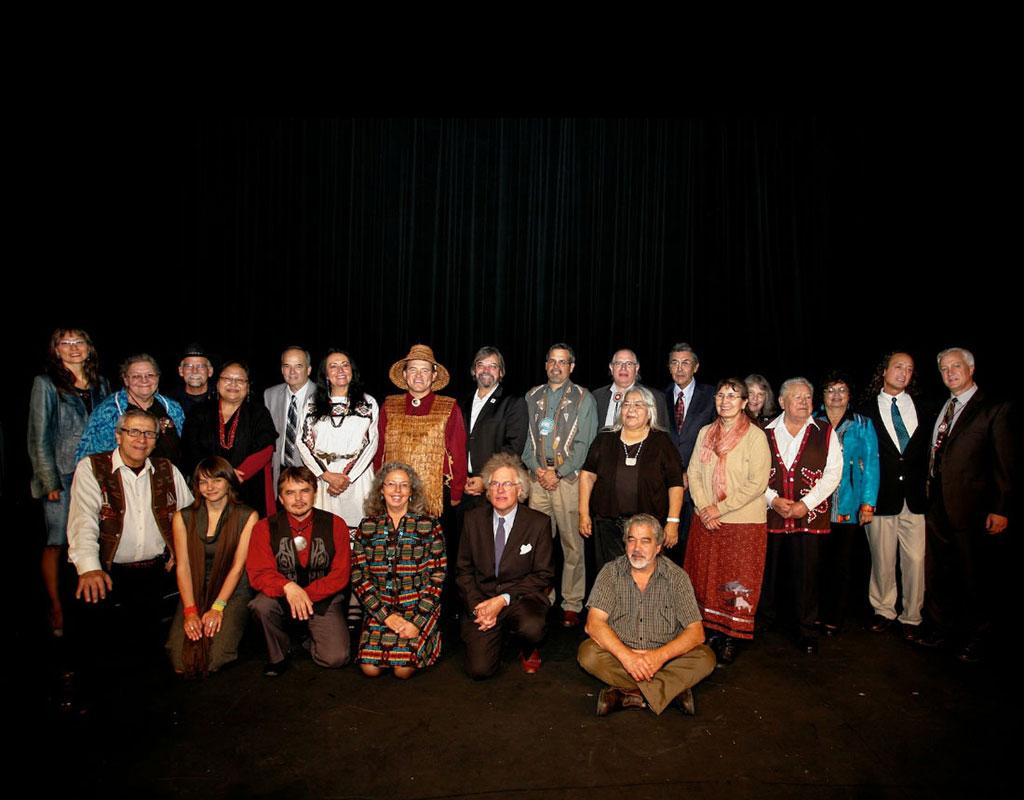
Ecotrust Indigenous Leadership Award honorees, awardees, and selection panel members gather at the 2012 Indigenous Leadership Award Ceremony. Photo credit: Liz Devine
Milestones: 1997-2009

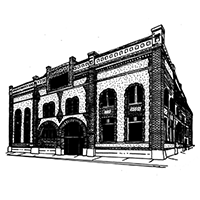
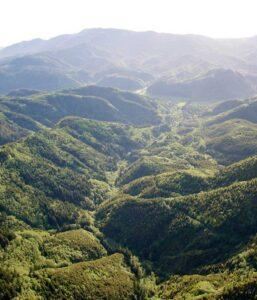
Links: Place Matters
Book
Spencer B. Beebe’s Cache is the story of one man’s 40-year career in conservation, exploring traditional models balanced against nature’s models, in the search for reliable prosperity.
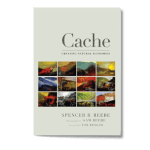
Publication
Perceptions of the natural world vary greatly, both among peoples and across historical eras. Some have viewed nature as a gift of the Creator, others as organic machine or living ecosystem.
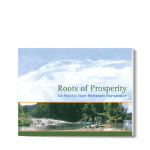
Publication
Living Proof is about a land use-and-occupancy research method called the map biography. It is structured as a how-to manual to help readers design and run the data-collection component of a successful map project.
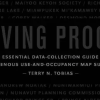
Publication
In the conservation economy—a society whose economic activity results in environmental and social improvement—distinct channels of economic and community activity combine in creative and unprecedented ways. Slowly and almost imperceptibly, people and places are transformed by a new kind of entrepreneurship.

Chapter 3: 2010-2015
Innovate, invest, inspire
Our hope is to build on a self-organizing system and support bold, not-afraid-to-fail experiments—a more natural and powerful approach to resilience than traditional top-down command and control. We will constantly adapt and evolve as we explore what works and what doesn’t.
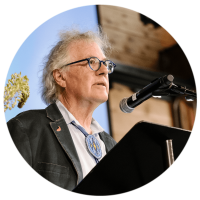
—Spencer B. Beebe, Ecotrust founder
Entering our third decade, our targeted community-based investments were coming together as projects and strategies for systems change at the intersection of equity, the economy, and the environment. We launched OceanMap, an open-source ocean mapping technology to support better management planning for the benefit of marine environments and communities, and we created Point 97, a for-profit marine consulting group supporting fisheries management through data management and data visualization.
Events continued to be powerful means for elevating leaders, developing connections, and sharing knowledge.There were many gatherings in this period, including Indigenous Leadership Awards ceremonies from 2010 through 2014 and the September 2011 Resilience Regions convening, which brought 44 leaders from around the world together to share perspectives on how to reliably and equitably provide for human and natural well-being. And we grew our capacity to bring people together as well: in 2014, we invested in a new property in Southeast Portland that would become the Redd on Salmon Street, a campus to serve both as critical food system infrastructure and a world-class events center.
This was also a period of transitions. OneCalifornia Bank completed its acquisition of ShoreBank Pacific in 2011, ensuring the ongoing triple-bottom-line impact of the bank, and we prepared our final issues of Edible Portland, which we transferred to a new publisher in 2016. Founder and President Spencer B. Beebe transitioned from active leadership of Ecotrust during this period. In 2012, Dr. Astrid Scholz, ecological economist and senior Ecotrust leader, was named president. Following her departure, Jeremy Barnicle, a leader in international development and engagement, joined Ecotrust as consultant, becoming executive director in 2016.
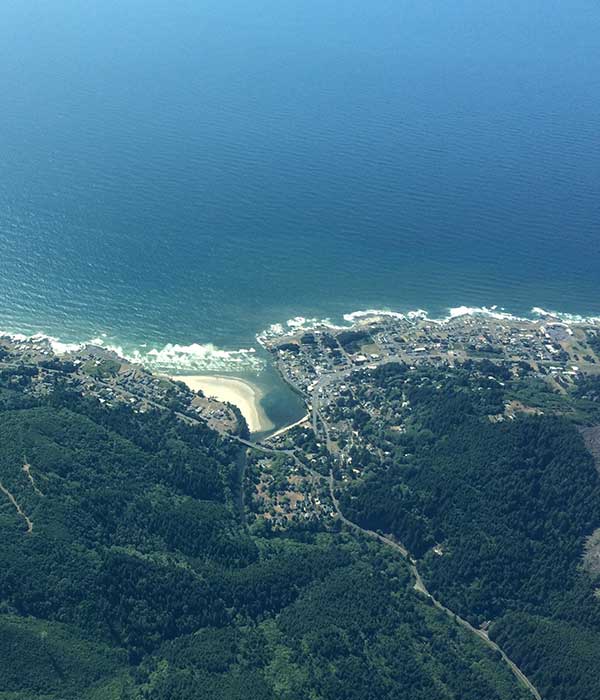
Aerial view of Sek-wet-se Forest. Photo credit: Sam Beebe

The Hesse-Ersted Ironworks Machine Shop, which was acquired by Ecotrust and reimagined as the Redd on Salmon Street. Photo credit: Sam Beebe
During this period, we evolved our understanding of social, economic, and environmental well-being in the context of the climate crisis. Some of our most impactful work grew from partnership with tribes as they asserted their sovereignty to assume a greater role in lands and waters management regimes. For several years ,we worked with the E3 Network, a team of economists committed to developing new and better arguments for protecting people and the planet, to release a series of reports on carbon emissions, including one study that linked carbon reduction and the reduction of harmful air pollution in communities of color. Spotlighting outcomes for racial equity in climate resilience was new to Ecotrust and came during a period in which our partnerships with justice movements and frontline communities were uneven. During these years, there were times when community partners gave us valuable critiques of our approach, and we did not act in response—a damaging pattern that we continue to learn from and apply to our work in partnership-building today.
During this period, Ecotrust was evolving our understanding of economic, social, and environmental well-being in the context of the climate crisis.
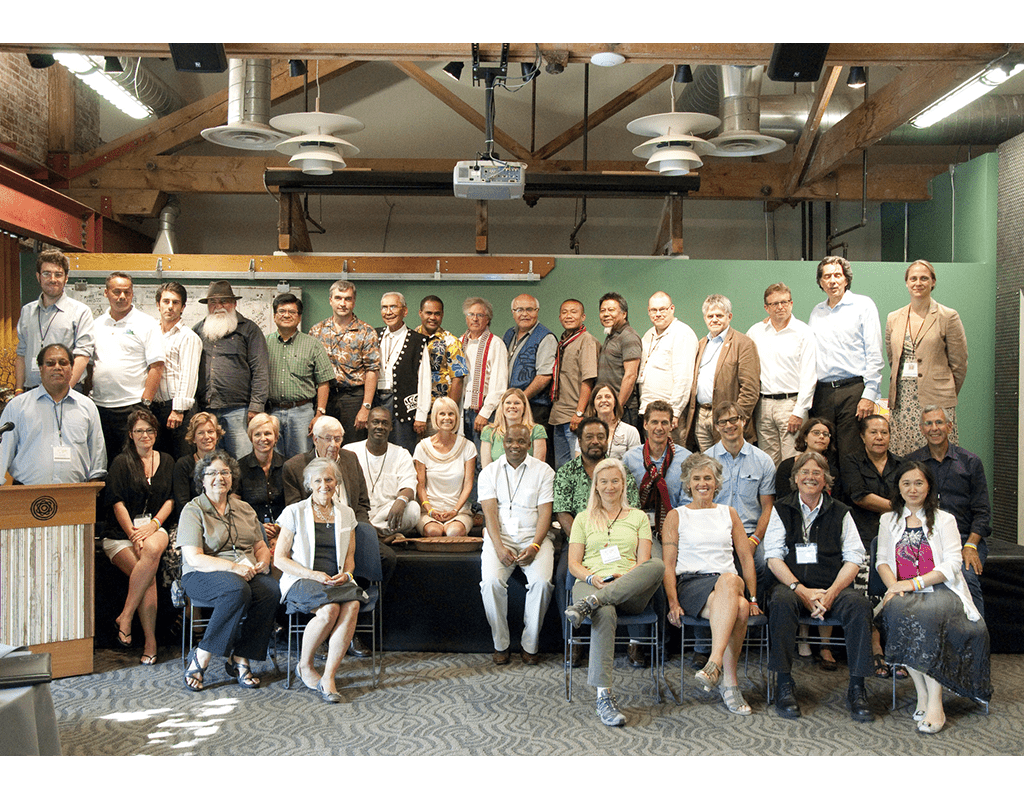
Group picture from the 2011 Resilience Regions Convening held at Ecotrust, images includes Patrick Dodson, Cecil Paul, Spencer B. Beebe, Gerald Amos, Leitanthem Umakanta Meitei, Ian Gill, Astrid Scholz, Brenda Reid-Kuecks, Brenda Kuecks, Mike Mertens, Kat Taylor, Ofelia Svart, Gun Denhart, Nell Newman, Robert Friedman, and many others. Sam Beebe
Milestones: 2010-2015
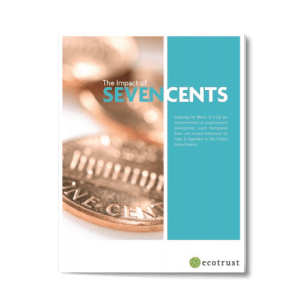
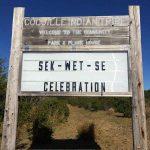
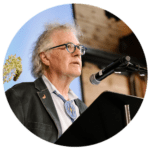
Links: Innovate, invest, inspire
publication
What if schools had an additional $.07 per meal to spend on buying local foods for the lunch line? During this research, we placed particular emphasis on evaluating the economic effects of increased procurement of local foods.
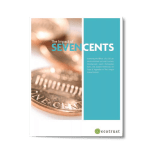
STORY MAP
A plan many years in the making came to fruition when Ecotrust Forest Management sold 3,200 acres of forestland to the Coquille Tribe.
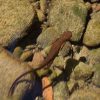
Chapter 4: 2016-2022
Shift Power
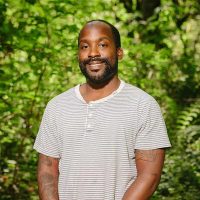
Ecotrust’s role in this journey is to be culturally responsive to the issues that are pertinent in our communities by elevating those voices through storytelling, building relationships, and having conversions. It’s time for Ecotrust to step up.
—Brody Abbott, Urban planner & Ecotrust staff 2016-2019 who co-created an alliance of culturally-specific organizations in Portland to develop opportunities for Black and Indigenous adults in the green economy
What does it mean to shift power in our work? In what communities are we making impactful contributions? Where are we causing harm? How will we center the voices and vision of the people who are directly impacted by systemic racism? The years 2016-2022 were a period in which staff, partners, and communities called on Ecotrust to recognize that dismantling systemic racism and building toward justice must become central to our work across the region.
Initiated with leadership from our Equity Working Group (2016-2021); Vice President of Organizational and Food Systems Equity Jamese Kwele; and visionary community partners, this period includes multiple efforts to center racial justice in our work and build inclusive process and anti-racist practices inside our organization and in our partnerships. This work is ongoing, and you can explore more at Equity at Ecotrust.
Between 2020 and 2021, more than 100 partners, staff, and community members contributed vision to Ecotrust’s 2021-2026 Strategic Plan, which articulates six interconnected goals for our next chapter. Transforming into an anti-racist organization with a culture of belonging and a resilient business model are the goals that enable our role in supporting community-centric work in climate resilience, broadly-shared intergenerational wealth-building, and lands and waters stewardship across our region.
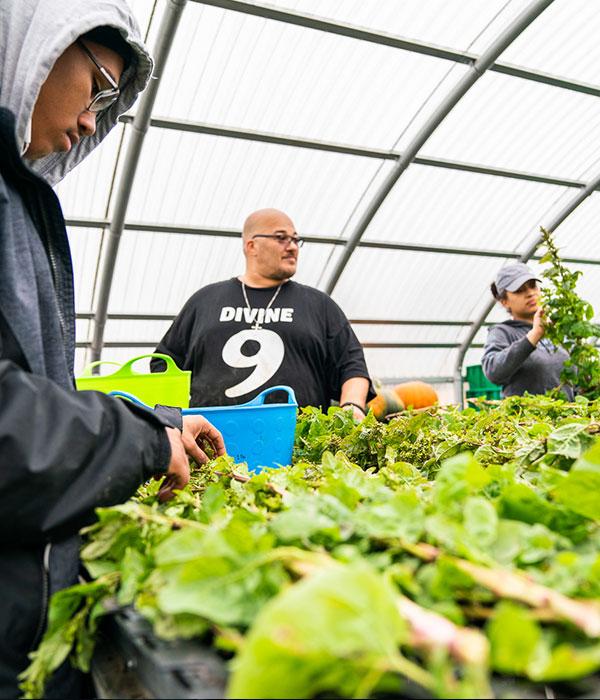
Green Workforce Academy instructor, Jason Stroman, at center, with 2018 Green Workforce Academy participants to his left and right, during a field trip to Unity Farms. Photo credit: Noah Thomas
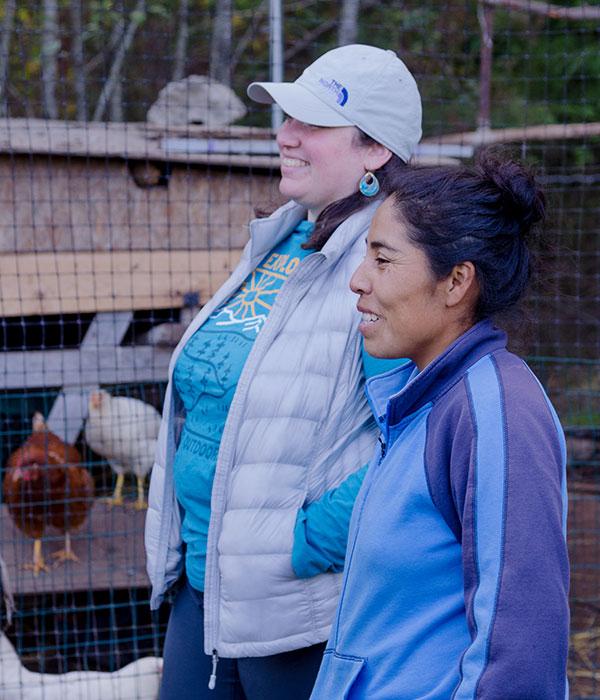
Yolimar Rivera Vázquez, Food Equity Manager, with Maura Vásquez of Silva Family Farm, a participant of the Ag of the Middle Accelerator, during the making of a video exploring how the program changed to center equity. Photo credit: Roland Dahwen
The goals in our Strategic Plan reflect how our now multiracial organization contributes to powerful collective work, including Green Workforce Collaborative and Green Workforce Academy, the Viviane Barnett Fellowship for Food System Leaders, the Sustainable Southeast Partnership, and partnerships in tribal forestry. The articulation of intergenerational wealth-building as a goal sparked the creation of the pilot Community Asset Development program. And the return of the Indigenous Leadership Awards affirmed commitments to Indigenous sovereignty and leadership that reach from our founding into our plans for the future. Within Ecotrust, this period included efforts towards equitable staff development, power-sharing, and shared decision-making, which were supported by the leadership of Interim Executive Director and Chief Impact Officer Olivia M. Rebanal.
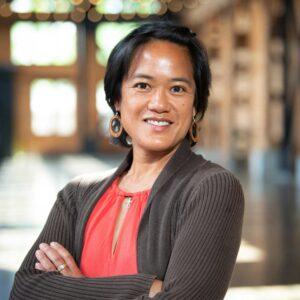
“
This work is not a straight line to progress. It is rich and circular. We are growing our Ecotrust circle to unlock the powerful potential of our place and this time
—Olivia M. Rebanal, Interim Executive Director and Chief Operating Officer, 2022
Milestones: 2016-2022
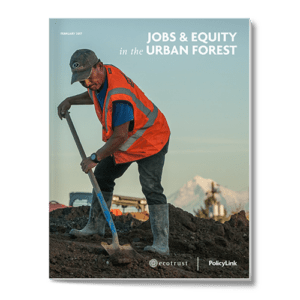

Links: Shift Power
BLOG POST
We are honored to host Ricardo Salvador, senior scientist at the Union of Concerned Scientists, as our keynote speaker at Light up the Redd, our annual benefit and celebration of people, place, and food.
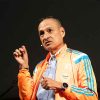
Publication
A partnership of PolicyLink and Ecotrust, with extensive input, review, and data assistance from Verde Portland, Jobs and Equity in the Urban Forest examines the economic, ecological, and social impacts of existing community based urban forestry investments designed to benefit low-income communities and communities of color.
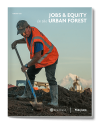
WEBPAGE
Ecotrust is committed to the ongoing work of embedding racial equity throughout the organization and our programmatic strategies.

WEBPAGE
In 2020, we set out to create a strategic plan for greater impact in our region. More than 100 people—including staff, board, and partners—came together to create this plan to guide the next five years of our work.
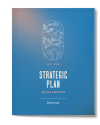
Chapter 5: 2023 – onward
today & onward
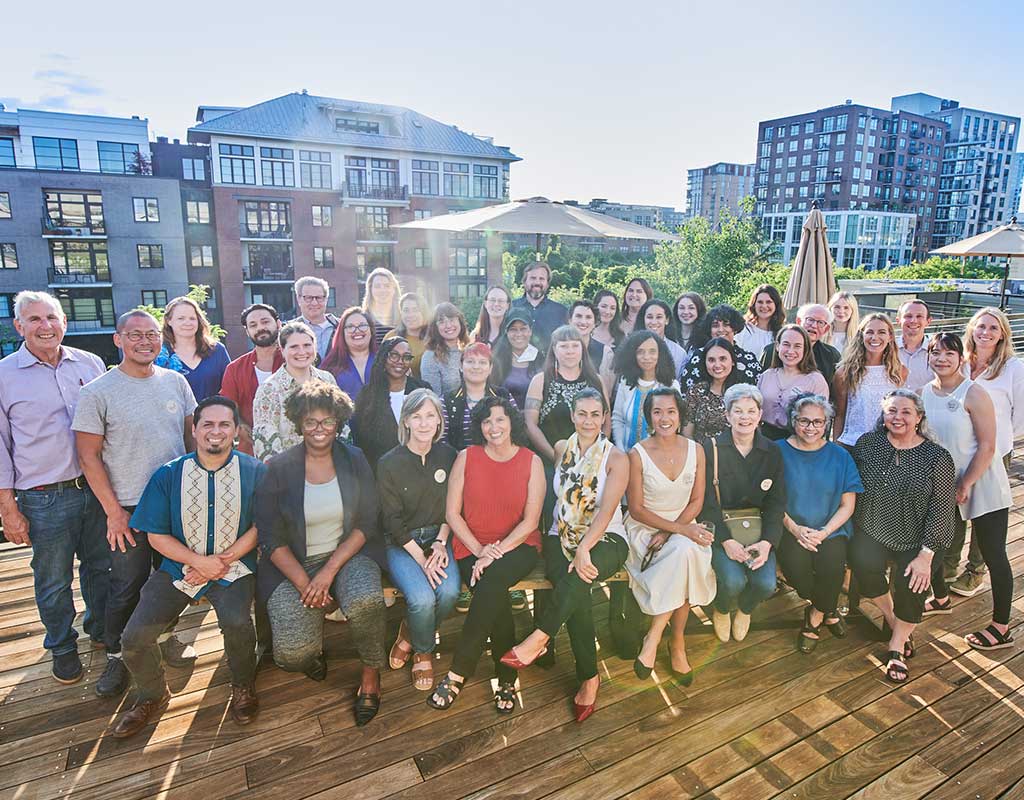
A group of Ecotrust staff and board members in June 2023. Photo credit: Jason Hill
In late May of 2023, the Ecotrust board unanimously selected Ronda Rutledge as Ecotrust’s new Executive Director, after an extensive nationwide search and hiring process involving staff at all levels of the organization. Ronda began her tenure on June 1, 2023.
We are moving forward together. Today with our partners, we are building towards an equitable, prosperous, climate-smart future. We invite you to get involved and follow us as the story grows.
In appreciation
A’Nova Ettien
Aaron Racicot
Adam Lane
Alana Probst
Alex Speaks
Alice Price
Allison Bidlack
Amanda Weiman
Amanda Oborne
Amanda Peden
Amber Peoples
Amber Schulz-Oliver
Amber Wagoner
Amiana McEwen
Alister Fenix
Andrea Hildebrand
Andrew Coleman
Andrew Fuller
Andrew Haden
Andrew Keating
Andrew Lightcap
Ann Mary Dussault
Arthur M. Dye
Astrid Scholz
Beck Barger
Benjamin Donaldson
Beth Hatfield
Bettina von Hagen
Brent Davies
Brett Williams
Brie Schettle
Brody Abbott
Bryan Ortega-Schwartz
Cait Kelley
Caitlin Leonard
Caitlin O’brady
Carolyn Holland
Cathy Kellon
Catriona Buhayar
Chad Derosier
Charles Steinback
Charlie Dewberry
Cheryl Chen
Chris Jones
Chris Sanford
Christina Cooper
Christine Caurant
Courtney N. Moss
Craig Jacobson
Dagmar Carstensen
Daniel Etra
David Pray
David Albert
Dawn Youmans
Deborah Kane
Debra Sohm
DeL’Aurore Kyle
Derek Reiber
Donald Sampson
Donna Marie Hicks
Dorie Brownell
Dorie Roth
Doug Thompson
Drew Seminara
Dwayne Canfield
Ed Hunt
Edward Backus
Edward C. Wolf
Edwin Knuth
Eileen Brady
Eleanor Sandys
Eli Kenny
Elizabath Groosman
Elizabeth Coleman
Elizabeth Woody
Elle McKay
Emalee Assenberg
Emi Brizuela
Emily Dietrich
Eric Foley
Erica McCall Valentine
Ericka Carlson
Erin Kellogg
Ernest McCarty
Felicia Murray
Gabe Carleton-Barnes
Gabe McMahan
George Dockray
Gladys Ruiz
Greg Robillard
Helyn Trickey
Howard Silverman
Hoyt Wilson
Jamie Denning
Jason Pretty Boy
Jaz Bias
Jeanne Kubal
Jeff Wright
Jen Marlow
Jenna Stathopoulos
Jennifer Bloeser
Jennifer Richards
Jennifer Froistad
Jennifer A. Allen
Jennifer H. Allen
Jerry Ledesma
Jim Norton
Jiselle Kennedy
Joel Miller
Joelle Marr
John Domingo
Jon McCloskey
Joren Love
Josh Ahmann
Juliana Baseman
Kala Biittner
Kaley Charlet
Kara Orvieto
Karl Dawson
Kate Carone
Katherine White
Kathie Wasserman
Katie Russell
Katy Pelissier
Kelly Harrell
Ken Vollmer
Kent Goodyear
Kevin Bumatay
Kevin Williams
Kim Burkland
Kimber Anderson
Kira Elam
Kira Harrow
Kristen Penner
Kristi Rux
Kristin Bowen
Kristin Saxton
Kristin Sheeran
Kyle Sweasey
Lalena Dolby
Lauren Johnson
Lauren Ward
Laurie Dunne
Leah Altman
Leanne Weiss
Leif Olsson
Leigh Ann Shelton
Leora Stein
Linda Delgado
Lisa Miles
Lita Buttolph
Lizzy Marsters
Lola Milholland
Lori Reinecke
Luke Gavin
Lyndon Barrois
Lynette “Kiwi” Ward
Madeline Corich
Malka Geffen
Manuel Guerra
Maralea Lutino
Marcus Hecht
Mark Sykes
Mary Krumm
Mathew Goslin
Matt Weber
Matt Flag
Matthew Perry
Megan Mackey
Melanie Troutman
Melia Donovan
Melissa Tatge
Michael Geffel
Michele Dailey
Michelle Markesteyn
Michelle Waters
Mike Mertens
Modeste Kabissaie
Nancy Bales
Nancy Church
Nate Hildebrand
Nathan Schwartz
Nick Lyman
Oakley Brooks
Ofelia Svart
Olivia Bartroff
Paige Poorman
Pete Reed
Peter K. Schoonmaker
Raymond Hollander
Rebecca Pilcher-Cleland
Rei Barnes
Rick George
RJ Kopchak
RM Eaves
Robert B. Richardson
Robert J. Ellis
Robin Rogers
Sam Beebe
Sam Doak
Sam Stoner
Samantha Parsons
Sarah Flaata
Sarah Lonigro
Sarah O’Connor
Sarah Klain
Sarah Kruse
Scott Fletcher
Seth Zuckerman
Seth Walker
Shauna Noah
Shaunna McCovey
Sheryllyn Dougherty
Sonya Hetrick
Stacy Holtman
Stephanie Webb
Stephen Lloyd
Steven Dettman
Steven McGrath
Steven Paget
Stuart Cowan
Stuart Rosenfeld
Sydney DeLuna
Sydney Mead
T.C. (Charley) Dewberry
Tamara Briggie
Tatianna Pavich
Taylor Hesselgrave
Tiffany Austin
Tim Welch
Tina White
Todd Diskin
Vishal Sharma
Wendy Crozier
Whitney Winsor
Will Novy Hildesley
Willa Rabinovitch
William Moore
Yveline Wilnau
Zoe Bradbury
Past Staff & Board
Andrea Alexander
Carol Edelman
Constance Best
Dalee Sambo Dorough
David Martin
Ian Gill
Jack Hood Vaughn
Jacqueline Koerner
Jeremy Barnicle
Jim Lichatowich
Mariusz Wroblewski
Nancy Schaub
Patricia Marchak
Sophie Engelhard Craighead
Spencer B. Beebe
Steven McGeady
Wade Davis
We honor our former staff and board members for their contributions to Ecotrust and our region! This list was created from past years’ Annual Reports and we apologize for any inaccuracies and omissions. Please contact us at contact@ecotrust.org if you would like your name added, removed, or updated.
Alan Parker
Amos Eno
Cameron Healy
Cory Carman
Dan Wieden
David R. Montgomery
Dick Jaffe
Dylan T. Simonds
Gerald Amos
Howard G. Buffett
Jack Loacker
Jane Jacobs
Jean Vollum
John Miller
Karie Thomson
Kat Taylor
Kathleen Shaye Hill
Ken deLaski
Leon Smith
Mark Edlen
Mary Houghton
Nancy G. Schaub
Nell Newman
Priscilla Bernard-Wieden
Robert C. Warren
Susan Hammer
Susie Lee
William H. Neukom
William T. Hutton
Past Staff & Board
Andrea Alexander
Carol Edelman
Constance Best
Dalee Sambo Dorough
David Martin
Ian Gill
Jack Hood Vaughn
Jacqueline Koerner
Jeremy Barnicle
Jim Lichatowich
Mariusz Wroblewski
Nancy Schaub
Patricia Marchak
Sophie Engelhard Craighead
Spencer B. Beebe
Steven McGeady
Wade Davis